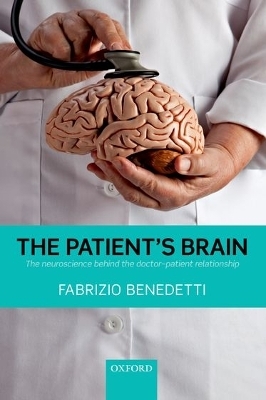
The Patient's Brain
Oxford University Press (Verlag)
978-0-19-957951-8 (ISBN)
There is a vast literature on what has often been called the doctor-patient relationship, patient-provider interaction, therapist-patient encounter, and such like. However, it is thanks to recent advances within neuroscience, that we now find ourselves in a much better position to be able to describe and discuss the biological mechanisms that underlie the doctor-patient relationship. For example, we now know that different physiological and biochemical mechanisms take part in complex functions, like trust, hope, empathy and compassion, which are all key elements in the therapist-patient encounter. With this neuroscientific knowledge in their hands, health professionals will soon be able to directly see how their words, attitudes, and behaviours activate and inactivate molecules, cortical areas, and sensory systems in the brains of their patients.
This revolutionary new book describes and explains how this new scientific knowledge can be put to great practical use. It shows how, from a neuroscientific perspective, the doctor-patient relationship can be subdivided into at least four steps: feeling sick, seeking relief, meeting the therapist, and receiving therapy. The main advantage to approaching the doctor-patient relationship from a neuroscientific perspective is that physicians, psychologists and health professionals can better understand what kind of changes they can induce in their patients' brains, further boosting the professional's empathic and compassionate behaviour.
Written by the author of the critically acclaimed 'Placebo Effects', this book will lead to a better awareness of the potential power that the doctor's behaviour may have on the patient's behaviour and capacity for recovery from illness, as well as to better medical practice and social/communication skills. It will be required reading for physicians, psychotherapists, and neuroscientists.
Fabrizio Benedetti received the Medical Doctor (MD) degree in 1981 from the University of Turin Medical School. In 984, he received a Silbert International Award from the University of California in Los Angeles (UCLA). In the 1980s and 1990s, he worked in the Department of Psychiatry and Biobehavioral Sciences at UCLA and was a visiting professor in the Department of Pharmacology at the University of Texas in Dallas. He has been Professor of Physiology and Neuroscience at the University of Turin Medical School since 1999. He has been a member of the six-strong group on placebo of the Mind-Brain-Behavior Initiative at Harvard University, and a consultant for the Placebo Project at the US National Institute of Health. His current scientific interests are the placebo effect across diseases, pain in dementia, and intraoperative neurophysiology for mapping the human brain.
1. A brief evolutionary account of medical care ; 2. Emergence and development of scientific medicine ; 3. Feeling sick: A combination of bottom-up and top-down events ; 4. Seeking relief: The activation of motivational and reward circuits ; 5. Meeting the therapist: A look into trust, hope, empathy and compassion mechanisms ; 6. Receiving the therapy: The activation of expectation and placebo mechanisms ; 7. The brain of the demented patient ; 8. Defence mechanisms of the body in the course of evolution: from cellular to social responses
| Erscheint lt. Verlag | 7.10.2010 |
|---|---|
| Verlagsort | Oxford |
| Sprache | englisch |
| Maße | 155 x 234 mm |
| Gewicht | 563 g |
| Themenwelt | Geisteswissenschaften ► Psychologie ► Allgemeine Psychologie |
| Medizin / Pharmazie ► Medizinische Fachgebiete ► Medizinethik | |
| Medizin / Pharmazie ► Medizinische Fachgebiete ► Psychiatrie / Psychotherapie | |
| Naturwissenschaften ► Biologie ► Humanbiologie | |
| Naturwissenschaften ► Biologie ► Zoologie | |
| ISBN-10 | 0-19-957951-2 / 0199579512 |
| ISBN-13 | 978-0-19-957951-8 / 9780199579518 |
| Zustand | Neuware |
| Haben Sie eine Frage zum Produkt? |
aus dem Bereich


